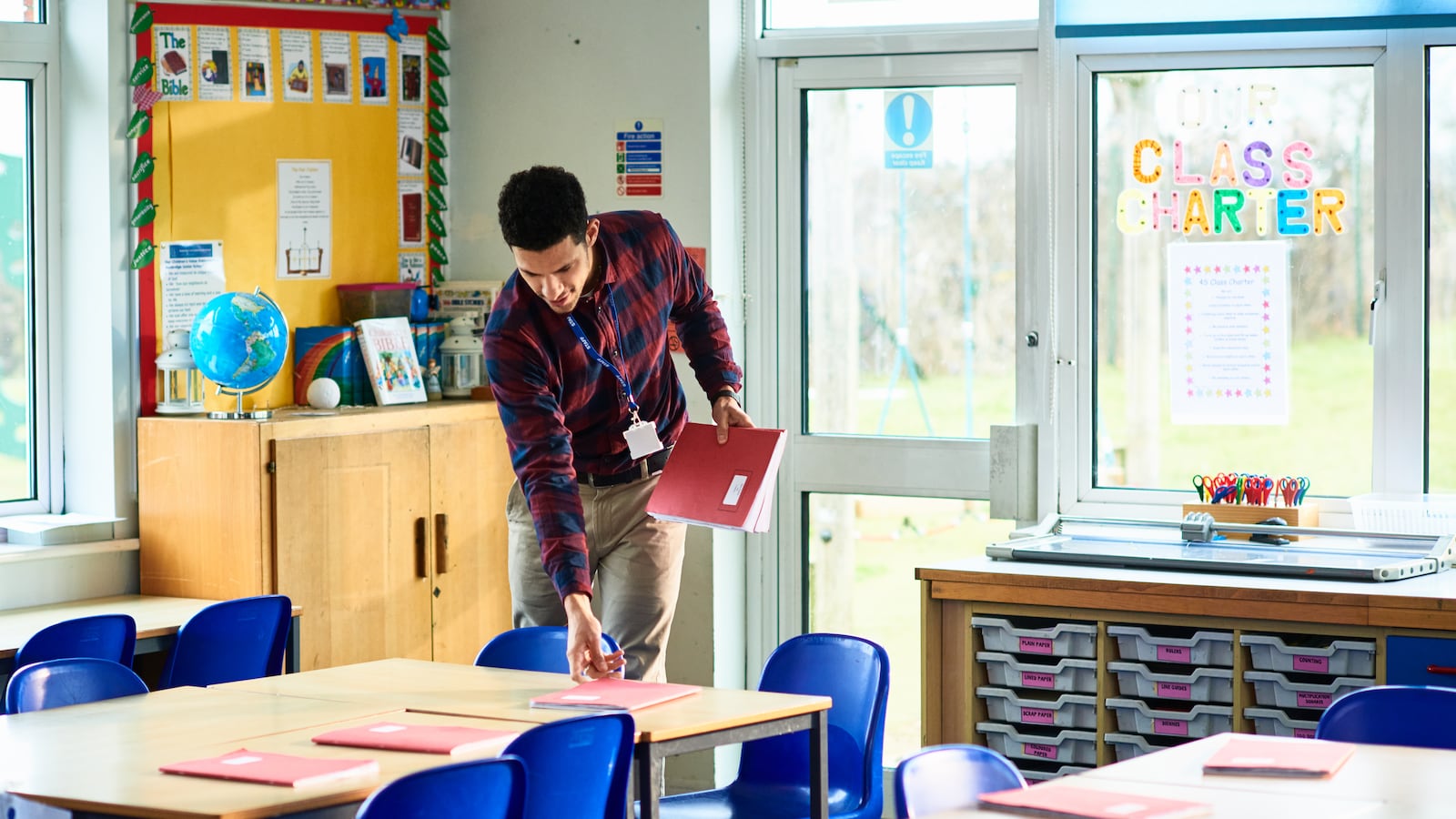I stand at the front of the classroom. Twenty-five high school kids are in there with me. I’ve never met them. They’re all chattering to one another as the bell rings to begin the class.
I call out a welcome to them, smiling, projecting my voice so that all can hear me. They take no notice of me. I try again. If anything, the hum of conversation rises. Some look my way, then return to their conversations. I begin to fret, raising my voice a little more. The conversations continue unabated.
The kids are not abusive, they’re not unruly. They just won’t stop talking. We’re now about five minutes into a 42-minute class.
Now, I’m strategizing as quickly as I can. I’ve never met these kids before, and we’ll be together for 179 more days. It’s the first day of school; I don’t want to yell. But I don’t want to be walked and talked over. I keep trying. They keep chattering. We’re now 15 or 20 minutes into this horror show.
... And then I wake up.

I don’t know how many times I had this dream during my teaching career. Most often it would happen during the last two weeks of August; those two weeks could be like the two weeks in which you’re waiting for your surgery, waiting for your year-end performance review, waiting to hit those rapids on the Colorado River.
I really enjoyed my career. And still, I’d dream this dream.
New Jersey high school teachers know that T.S Eliot was all wet. April is surely not the cruelest month; it’s the four weeks from mid-August through mid-September. The day after Labor Day, you sit through interminable first-day meetings, lug hundreds of textbooks from a storage room to your classroom, and decorate that classroom. Days later, you go over classroom procedures with your students, complete form after form that you completed in previous years, and block out time to take required online courses regarding the protection of students’ physical and mental health.
You ruminate on establishing a classroom environment that will last through June. You know that if you establish the right climate in September, you’ll spend little time on students acting out over the ensuing nine months. You’ll be able to enjoy teaching.
But how to do it? That’s not always an easy call.
The question for all but the strongest, most charismatic teaching personalities: Given the as-yet-unknown classroom chemistry of each of your five classes, how do you want to come across? Friendly, approachable, and compassionate hold allure, but what if your students — or even one or two of them — read that as weakness and an invitation to test limits?
Or do you go with authoritative, businesslike, and orderly?
So much of your satisfaction when you walk out of the building in June will have to do with how you manage setbacks.
When asked by their parents after the first day of school how they like their teachers, your students will label some as “nice.” Is it important that you be on that list? Or is it in your interest to reveal your niceness gradually over the course of the year? Is niceness actually less important than kindness? Or than being respected?
I know what you’re saying: Why does it have to be either/or?
A fair question. How many people do you know that simultaneously project approachability, compassion, authority, and orderliness?
While you’re working to be all of the above, you’re also trying to teach some really compelling early lessons, lessons that engage your students, that awaken and enliven them. Lessons that signal that you’re surely not going to lecture and run PowerPoint slideshows 42 minutes a day, five days a week, for 36 weeks. Lessons that make clear that they will carry the ball a lot. You’re going to try early to show them some of your best stuff since you want them to think: This class might actually be OK.
And that’s why, right now, as you read this, if you’re a high school teacher waiting to start the year, you may be feeling excited as you anticipate seeing your colleagues and the students with whom you’ve enjoyed working. But also anxious. You know pretty well what could go wrong, and you know that you have only so much control over what’s to come.
Chances are that your own commitment to the work will mean another fulfilling year for you and your students. (Not “High School Musical,” “Dead Poets Society,” “Mr. Holland’s Opus” fulfilling. You teach in a school, not on a Hollywood set.) And it’s not as though you expect a year free from adversity. So much of your satisfaction when you walk out of the building in June will have to do with how you manage setbacks.
But you know better than anyone that there are no guarantees. That’s why, as a high school teacher, over the next few weeks, as you bid farewell to summer vacation and get back to the good work you do, you offer us all a profile in courage.
Richard Schwartz taught social studies at Whippany Park High School in Whippany, New Jersey, for 43 years before retiring in June 2022. He is the author of “The Prairies on Fire: Lincoln Debates Douglas, 1858.” His newsletter, Common Sentences, is on Substack.



